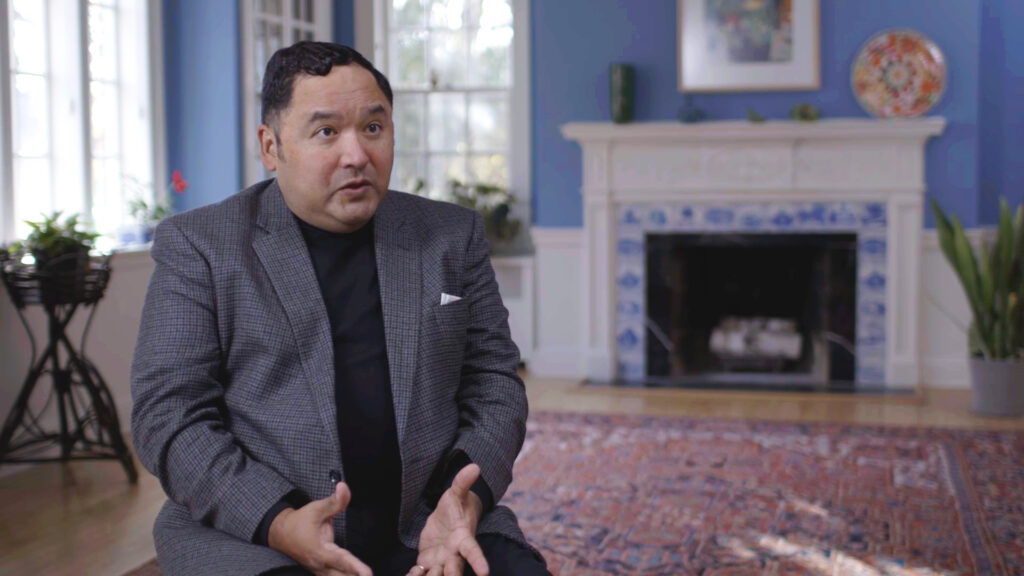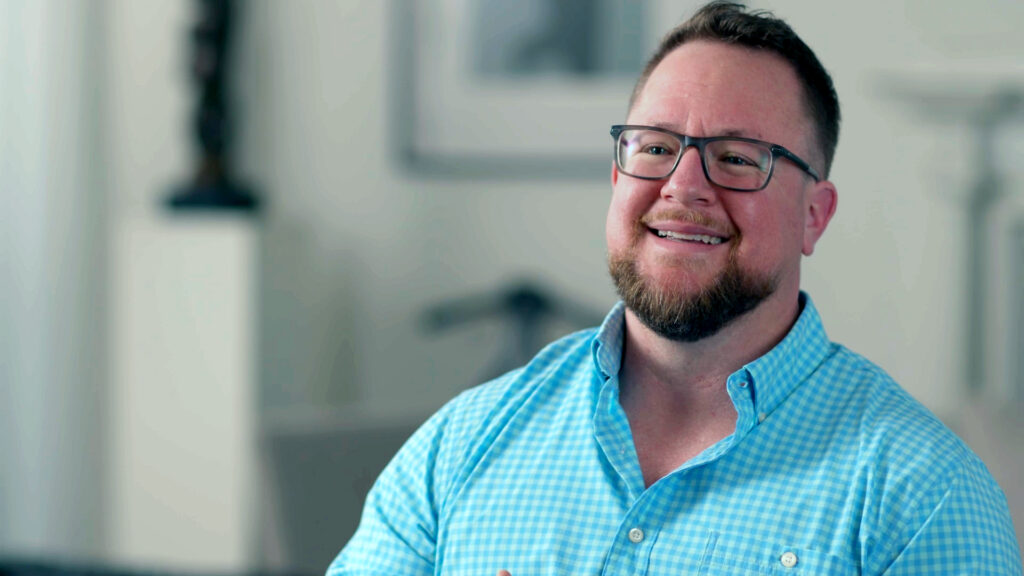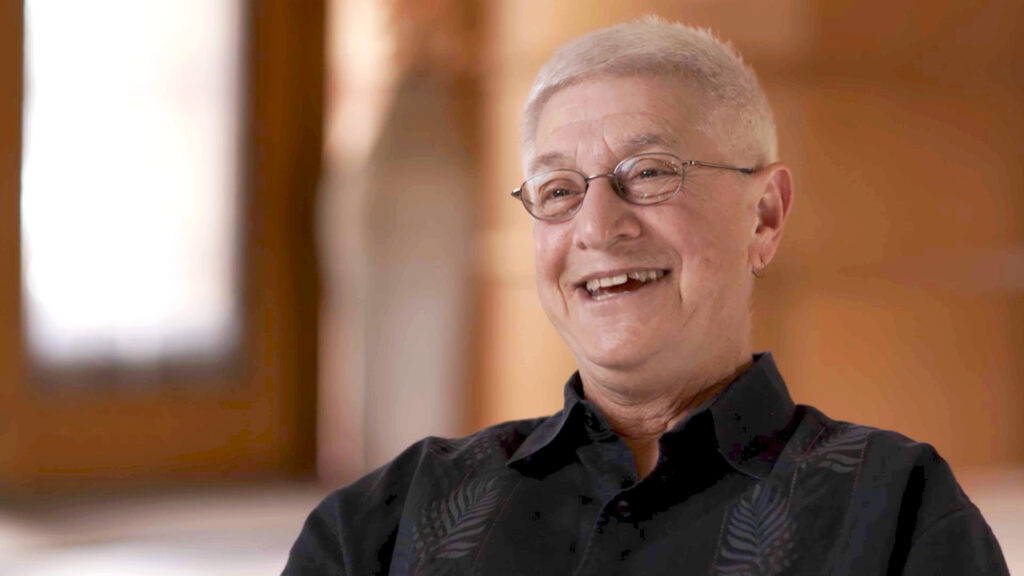A look inside the upcoming LGBTQ+ history documentary ‘Wisconsin Pride’ – read a group Q&A!
The all-new PBS Wisconsin documentary, Wisconsin Pride, brings hidden LGBTQ+ stories forward and reconsiders our state’s history in that light.
05/23/23
The all-new PBS Wisconsin documentary, Wisconsin Pride, brings hidden LGBTQ+ stories forward and reconsiders our state’s history in that light.
05/23/23
The all-new PBS Wisconsin documentary, Wisconsin Pride, brings hidden LGBTQ+ stories forward and reconsiders our state’s history in that light. A groundbreaking collaboration between PBS Wisconsin and the Wisconsin Historical Society, the film reveals Wisconsin’s history in a more inclusive scope.
Watch Wisconsin Pride 7 p.m. Tuesday, June 20 on PBS Wisconsin. This powerful two-hour documentary will also be available starting June 1 at pbswisconsin.org/pride and on the free PBS App on all streaming devices.
In anticipation of the premiere, PBS Wisconsin spoke with the film’s producer, Andy Soth, and three members of the LGBTQ+ community who are featured in the documentary.
PBS Wisconsin: What do you hope people take away from the documentary?
Andy Soth: I hope viewers take away a richer appreciation for our state’s history. LGBTQ+ history, simply put, is Wisconsin history. This is an authentically Wisconsin story. There are so many intersections with Wisconsin traditions and our LGBTQ+ citizens.
After seeing the documentary, people usually tell me who their favorite person is in the film. It is unique that viewers have connected so much with the Wisconsin Pride subjects in a way that maybe you wouldn’t after watching a political documentary, for example. You don’t always relate to those typical historical figures in such a personal way that you might with someone whose story is about overcoming resistance to how they wanted to live their life.
——

Víctor M. Macías-González, professor of History and Race, Gender, and Sexuality Studies at the University of Wisconsin-La Crosse.
Wisconsin Pride starts with Indigenous people prior to Wisconsin’s European colonization and continues through the 19th and 20th centuries. Víctor M. Macías-González, professor of History and Race, Gender, and Sexuality Studies at the University of Wisconsin-La Crosse, provided insight throughout the documentary, especially about the significance of gay bars and their role in the LGBTQ+ rights movement.
PBS Wisconsin: Why do you think documentaries like Wisconsin Pride are important?
Macías-González: For me, the importance of this kind of program is letting young people know that they’re not alone. There’s a lot of us, and we have this long history going back to the origins of the state, even before territorial days. I want to give young LGBTQ+ people hope so that they can begin to overcome homophobia, self-doubt and loneliness which, in many cases, leads to these outrageous rates of LGBTQ+ youth suicide.
——

Biographer Brice Smith
One of the historical figures featured in Wisconsin Pride is Lou Sullivan, a pioneering transgender man and trans activist from Milwaukee. Brice Smith holds a doctorate in history from the University of Wisconsin-Milwaukee and is the main source for our story about Sullivan, whose biography he authored.
PBS Wisconsin: If we had more time in the documentary to dedicate to Sullivan, what would you want viewers to remember about him?
Smith: I’d like folks to know that first and foremost he was from Milwaukee, Wisconsin, and just how much that shaped him and his work in profound ways. Yes, he moved out to San Francisco, and they might claim him as their own. But, even when you move to places you can’t necessarily shake your roots and who they help you to become, and Sullivan always maintained ties back here, too.
I think there’s something really special both about Milwaukee and Wisconsin, and Midwesterners in general, in terms of how we move through the world and how we approach activism. I feel like we do it from a place of civic-mindedness acting more as neighbors. I like to joke that we don’t demand our rights, we believe in working hard for them here in the Midwest.
——

Activist Judy Greenspan
The second hour of the documentary highlights the early days of Wisconsin’s LGBTQ+ liberation movement. Judy Greenspan, who uses the pronoun they, made history as a student at UWMadison when they became the first out-lesbian to run for public office in the United States.
PBS Wisconsin: Why do you think documentaries like Wisconsin Pride are important?
Judy Greenspan: Pride has been recorded, but mostly focusing on New York and California, and very little has been documented in terms of what happened inside the country. What happened in the Midwest? What happened in other regions?
So projects like Wisconsin Pride are very important to show that there was a vibrant movement in the Midwest. The Midwest is not often thought of as a place where there were firsts, or there was LGBTQ+ pride activity early on, and there was.
Also, documenting history is important in terms of supporting up-and-coming LGBTQ+ youth who want to see what happened before. Hopefully they’ll be strengthened by understanding where we came from.
—–
Wisconsin Pride features and celebrates R. Richard Wagner’s work as a historian and author. Wagner, who passed away in 2021, is featured in the documentary, and his two-volume history from the Wisconsin Historical Society Press — “We’ve Been Here All Along: Early Gay History in Wisconsin” and “Coming Out, Moving Forward: Wisconsin’s Recent Gay History” — provided guidance and inspiration for the program.
PBS Wisconsin: What was it like working with Dick Wagner?
Soth: He couldn’t have been more gracious. He met with me even when we were developing the proposal for the documentary. And then, on the two days of our interviews, he welcomed the PBS Wisconsin team into his beautiful home. We showed up at 7 a.m. and he was bright and fresh, and had prepared a coffee cake for us. His warmth and graciousness really put me at ease. Certainly, when you’re interviewing someone, you want to put them at ease. He could be sort of an intimidating figure with all his knowledge, but he shared it freely.
I would love to get your thoughts, suggestions, and questions in the comments below. Thanks for sharing!
Marie
As a grandparent of two trans grandchildren I worry about their future in this country. So many states are banning language and medical treatment for these children. Wisconsin used to be progressive and now it seems regressive. They would never choose work or college inWI, but can go next door to Minnesota and be treated as human beings. Go figure.